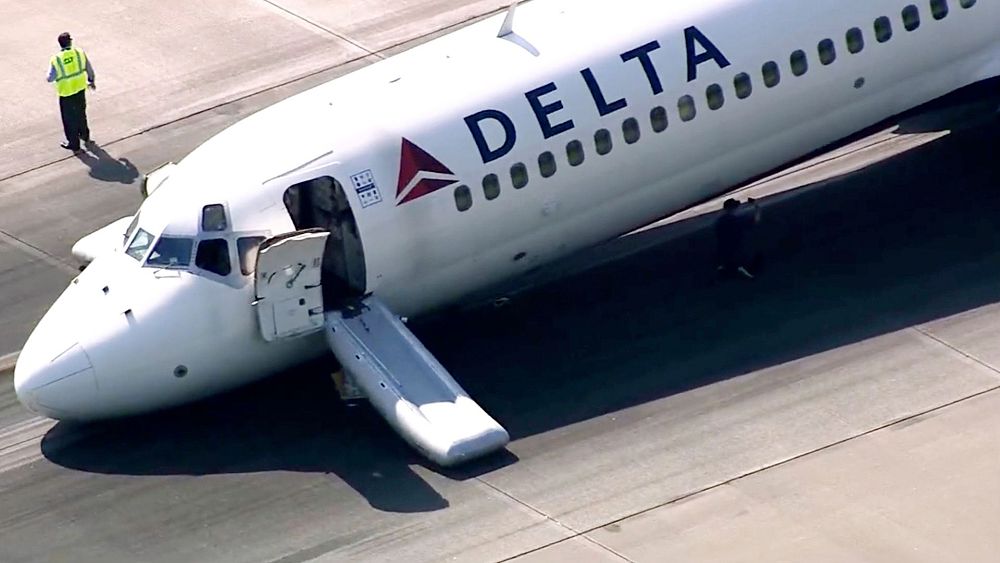Chances are many of us won’t have had to evacuate a plane. But most of us have worried we might have to.
We probably feel like we would know what to do in such a situation, thanks to the onboard safety briefings we’ve sat through.
But what if it really did happen? What would evacuating a plane actually be like?
CiCi in the Sky is a flight attendant, real estate broker and social media influencer who has the inside track. Thanks to her job as a Delta Airlines attendant, she gives her followers a behind-the-scenes look into the airline industry.
She documents her travel experiences on her blog and social media accounts and recently provided insight into an incident at Atlanta airport, where the tyre of a Boeing 757 caught fire on landing.
Here’s what we learnt about evacuating a plane.
You have to leave (almost) everything behind during a plane evacuation
CiCi emphasises what all flight attendants tell us during the pre-flight briefing: don’t take anything with you when leaving the plane.
In the video, some passengers are seen taking their phones with them. CiCi says this is okay because they won’t tear the slide or get in the way of other passengers leaving as, say, luggage would.
You might be asked to assist other passengers if you have to evacuate a plane
It’s obvious that the most help you can be during an evacuation is to do as the flight attendants tell you: stay calm, follow their directions to the exits and use the slide safely.
However, some passengers might be asked to help out.
CiCi points out what are known as ABPs - able bodied persons - which are passengers selected to assist the flight crew with an evacuation. From the Atlanta video CiCi shared, the ABPs were used to help passengers off the bottom of the slides.
How are ABPs chosen? According to CiCi, the flight crew assess passengers for their ability to help in an emergency as they board the plane.
The Global Information Aviation Network (GAIN) says that the best choices of ABPs are (perhaps unsurprisingly) off-duty crew members, military personnel, emergency service workers and medical professionals. Conversations between the flight crew and passengers can also help identify who would be asked to assist in the case of an emergency.
Tasks typically assigned to ABPs include operating an exit, helping direct passengers away from the plane once on the ground and sitting with and assisting passengers who might need help evacuating.
When evacuating a plane, always trust in the flight crew
The key thing to do in the case of an evacuation is to stay calm. Most flight attendants go through months of training, while it can take years to qualify for a commercial pilot’s licence.
This means all the on-board staff are trained to deal with emergency situations and know how best to look after passengers before, during and after a flight.
How common are plane evacuations?
Plane evacuations are extremely unusual. The Federal Aviation Authority (FAA) says around 30 evacuations take place globally each year.
When compared to the amount of planes in the sky - some near-39 million flights in 2019 according to International Air Transport Association (IATA) - that’s incredibly rare.
Should you need to evacuate a plane, however, you can be confident it’ll happen quickly. For an aviation manufacturer to ensure its vehicles pass the required safety tests, planes must be able to evacuate all their passengers within 90 seconds.


